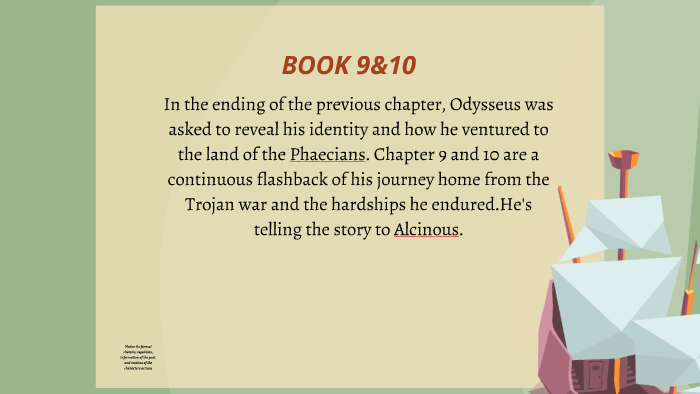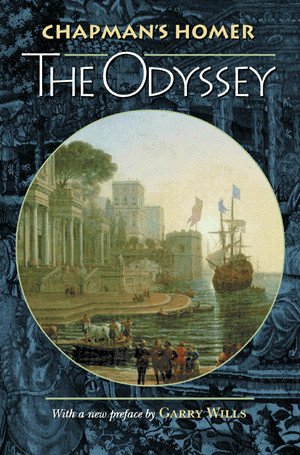

Yet, Odysseus’ self-label here also reflects the functional use of epithets within the narrative. Nor are his words hollow, and time and again in the Odyssey he proves himself to be a warrior of the sharpest intelligence, as the meticulously prepared death of the Suitors demonstrates (Bk.22). Sheila Murnaghan further notes that one of the several forms of ‘no-man’ in Greek is in fact mêtis, an irony unfortunately lost in translation.2 Importantly, Odysseus is defining himself, both immediately and through action, as a trickster. Odysseus engineers a plan that simultaneously punishes the Cyclops and ensures that he and his men are freed from the dwelling, and although physical force is involved, the hero could not have made his escape without this quality of mind. They call me Noman My mother, my father, and all my friends, too!’ (9.364-365) Strength must be balanced with mental dexterity and ingenuity, faculties that Odysseus applies to great effect in his escape from Polyphemus’ cave: Physical prowess alone is not enough to warrant the label of ‘hero’. It is therefore not surprising that, at times, there is only an oblique distinction between ‘characteristic’ and ‘theme’, as is the case with mêtis (intelligence / cunning). Penelope’s enduring grief, Telemachus’ voyage, and the presence of the Suitors all stem from the troubles of this single figure. Even when he is not occupying the foreground of the narrative, as in the Telemachy, Odysseus provides a centre for the actions and words of those on whom Homer does choose to focus. Both challenge and stretch the protagonist, be it emotionally, physically or mentally, and in the process of doing so the episodes emphasise and augment many of the pervasive thematic and narrative features of the epic.Īs the protagonist of course, Odysseus is himself a galvanising force within the poem.

The first of these, Book 9, involves Odysseus’ encounter with Polyphemus, the man-eating Cyclops, while in the second, Book 19, the hero, now in the guise of an old beggar, meets with his wife, Penelope.

Odysseus eulogises Demodocus, the blind bard, and at the same time Homer eulogises his own art of storytelling an art that I will examine in the course of this essay, through two books that hold particular thematic prominence in the Odyssey.

Book 9 opens with what might be termed an apologia on the part of the poet: ‘what could be finer / Than listening to a singer of tales’ (9.2-3)1.


 0 kommentar(er)
0 kommentar(er)
